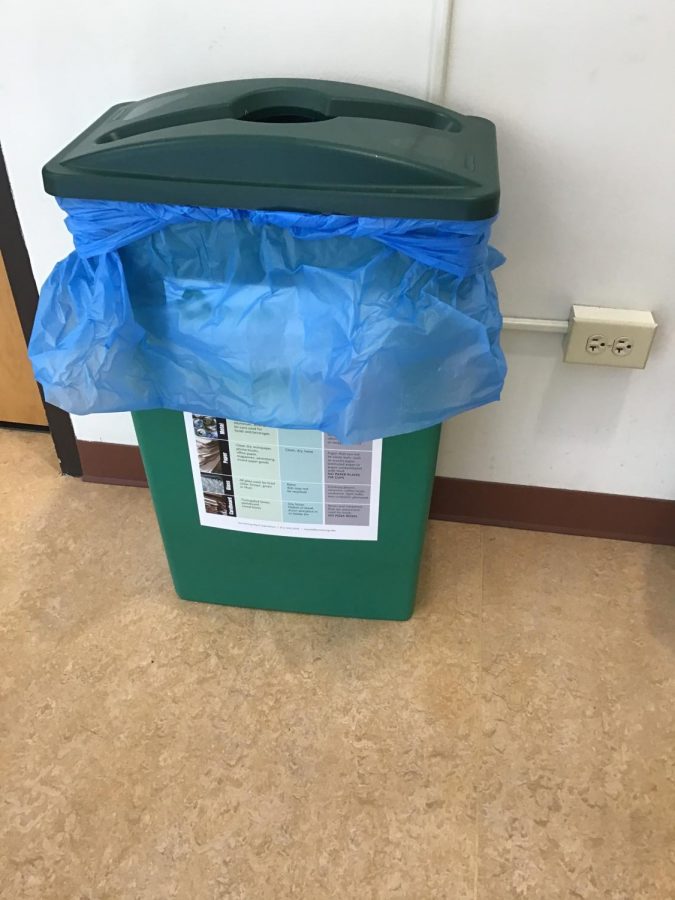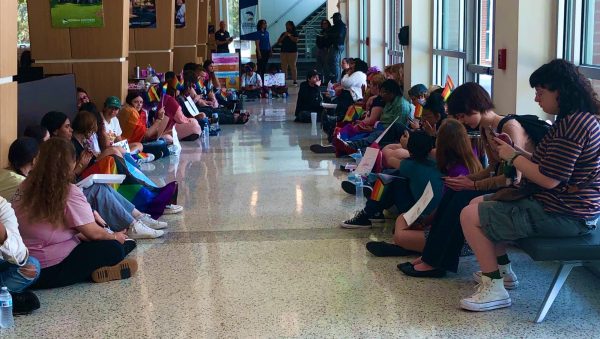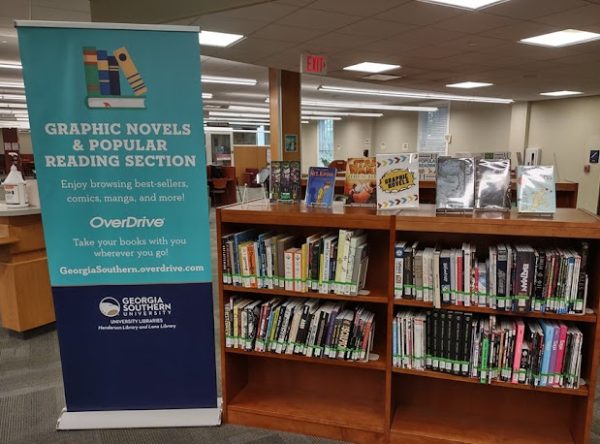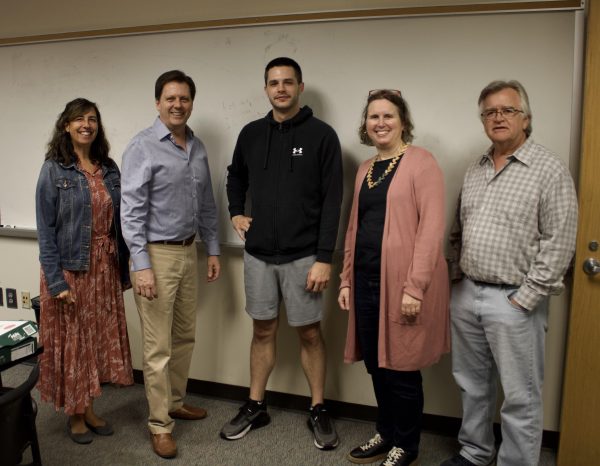Op-Ed: Paper Recycling at a University Shouldn’t be This Hard
May 5, 2021
A discussion about recycling in my Principles of Environmental Health class transitioned to a conversation about where students can recycle on campus. One form of recycling that I pointed out our campus lacks is bins for paper. This is a university, not a restaurant or a hotel.
The university population makes significantly more paper than plastic or aluminum. In fact, in 2013, the university recycled 133.20 tons of office paper compared to only 15.42 tons of aluminum and plastic, according to the Center for Sustainability webpage.
What I want to know is this: How did all of that get recycled when there are not adequate recycling cans on campus? There are just two cans labeled paper-only on the whole campus. They are tucked in the back of the library behind the reference librarians’ offices to the right of the bathrooms.
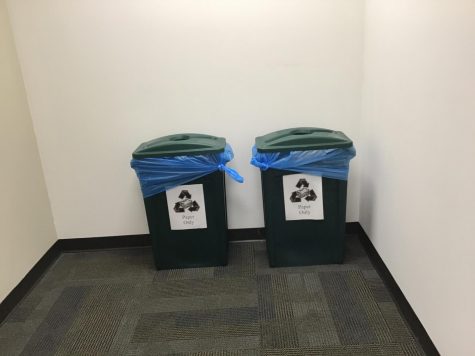
Most of the remaining recycling cans are labeled for aluminum or plastic and have bottle shaped holes in the top, making it inconvenient to recycle paper even if someone wanted to.
Faculty can receive their own personal recycling boxes, called “Eagle Boxes,” from the university. This makes it more feasible to recycle their waste in their offices.
Faculty who would like to request an “Eagle Box” should submit a work order request.
Unlike the larger trash cans around campus, faculty must dump their own “Eagle Box” into a larger recycling bin on campus. Additionally, these boxes only solve half the problem. What about all the paper that students generate?
As a student in the humanities department, I know a thing or two about paper generation.
We have to print out our papers for peer review. Some professors still request paper copies of certain assignments. Other professors suggest printing out the slides before the lecture, so students can take notes on the slides, nevermind the fact that there are five dozen slides per chapter.
Other times, readings are not in the textbook and need to be printed out, because I don’t know about anyone else, but I cannot closely read a text electronically for more than five pages.
These are just a few of the ways that students in our department, and possibly other departments, generate substantial amounts of paper. Yet, the Learning Commons and Lane Library are not equipped to handle that amount of paper, and there are no paper recycling bins anywhere else on campus.
The lack of paper recycling is especially apparent at the end of the semester. All those slides or readings that students needed until the cumulative final exam or the final paper are no longer necessary. Students throw them out in multitudes.
If the paper recycling bins cannot hold the volume of paper that students throw out at the end of the semester, what are they supposed to do with this paper? It’s not as responsible to throw it in the trash. I like to at least try to be a good steward of what I have been given when I can, but the current situation surrounding paper recycling on this campus has made that nearly impossible.
If part of the mission of the Center for Sustainability at Georgia Southern is “to provide incentives for faculty, staff, and students to incorporate sustainability in research, teaching and service,” then it makes sense that the Center for Sustainability and other university leadership would make it as effortless as possible to recycle the university’s most recycled good: Paper.


